Roxanne Maillet
Roxanne Maillet

VNOUJE 4
Cécile Bouffard, Roxanne Maillet and 1 more
4ème numéro de l'épopée lesbienne en épisodes par la collective Fusion, ce recueil d'aventures se lit dans n'importe quel ordre.

La Redoutable
La Redoutable compile les archives lesbiennes de trois provenances distinctes mais complémentaires. Aux abords de l’ARCL (Archives Recherches Culture Lesbiennes) se rencontre Caroline Drieu, Roxanne Maillet et Suzette Robichon. Elles se racontent des mots imprimés sur des t-shirts et des gapettes. Ces slogans, fruits de détournements, plagiats et jeux de mots sont en plus d’être revendicateurs, des signes distinctifs pour un réseau de lesbiennes absolument occupées à incarner les attitudes qui les définissent. Ces viragos peuvent se connaître ou non, mais un jour, ielles se retrouveront certainement dans des jardins partagés, à des groupes de lecture, des barbecues ou des karaokés.

Revue Phylactere n°2 - Oh là là !
Roxanne Maillet, Auriane Preud'homme
Phylactère est une revue annuelle à voix multiples, née du désir d’explorer l’écriture de l’oralité et les possibilités de retranscription de performance, à travers des visions authentiques, subjectives et spontanées. Donnant la parole à des amateur·ice·s, artiste·s, designer·s et penseur·se·s, la revue Phylactère regroupe des écrits de transition, assumant tous les glissements entre un script, l’action réalisée et sa traduction, avec une attention extrême et aventureuse pour la manière dont les contextes, gestes, émotions et espaces sont mis en jeu lors de cette retranscription.
Initiée par Roxanne Maillet et Auriane Preud’homme à l’invitation de Camille Videcoq lors de la résidence Entrée Principale (Marseille), Phylactère conjugue pratique graphique et éditoriale et démarche curatoriale en intégrant au processus de publication l’organisation de différents événements.
Pour son deuxième numéro, Phylactère prend pour titre l’onomatopée Oh là là !
Avec les contributions de : Anne Lise Le Gac, Benoît Le Boulicaut, Camille Videcoq, Cecil Serres, Claudia Pagès, Considered to be Allies (Margaux Parillaud & Mie Frederikke Fischer Christensen), Ghita Skali, Giuliana Zefferi, Lauren Tortil, Loreto Martínez Troncoso, Louise Hervé & Clovis Maillet, Mona Gérardin-Laverge, Nygel Panasco, pauline l. boulba, Sarah Browne, Susie Green (with Kim Coleman, Simon Bayliss & Rory Pilgrim), Tahnee, L’autre and Tiziana La Melia.
Conception graphique : Auriane Preud'homme et Roxanne Maillet.

Revue Phylactère n° 1 Patati Patata
Roxanne Maillet, Auriane Preud'homme
Phylactère is born from a deep desire to transcribe performance, with authentic, subjective and spontaneous point of views; giving voice to amateurs, artists, designers and thinkers alike. Phylactère is published once a year. Each issue takes an onomatopoeia as its theme. Phylactère publishes transitional writings and in turn welcomes the discrepancies between a script, the performed action, to its translation; with an extreme and adventurous attention given to contexts, gestures, emotions and spaces put at stake during this transcription.
Phylactère is digging into post-performance, allowing those who weren’t present to get a reading of it and experience it from another perspective. This first issue has the theme of the French onomatopoeia Patati Patata: an inexhaustible and endless chatter, long or short discourse, gossip, word of mouth, whispers… Patati Patata or «Yada Yada Yada» in English, is a too much of speech, an endless story, an et cetera expressed out loud. Phylactère is a journal composed of multiple voices, initiated by Roxanne Maillet and Auriane Preud’homme, produced by RondPoint Projects and published by Immixtion Books.
Contributors : Alexandru Balgiu, Anna Tuccio, Anne Marchis Mouren, ArianE Sirota, Barbara Quintin & Liv Schulman, Barthélémy Cardonne, Camille Soulat, Dorota Gaweda & Egle Kulbokaite, etaïnn zwer, Ilke Gers, Josèfa Ntjam, Laure Vigna, Louise Siffert, Lou-Maria Le Brusq, Maria Barnas, Marouchka Payen, Martha Salimbeni, officeabc, Philippe Goguely, Sarah Korzec, Simili Gum, Sven Dehens et Uta Eisenreich.
Texts in English and French
Graphic Design : Auriane Preud'homme et Roxanne Maillet
And more

Le Soleil et l’Acier
Le Soleil et l’Acier est un recueil de textes assemblé par Laurianne Bixhain lors de clubs de lecture qui se sont tenus pendant sa résidence au Musée de l’imprimerie et de la carte à jouer de Grevenmacher (Luxembourg). Pour faire écho au travail de Monique Wittig, Roxanne Maillet a dessiné de nouvelles ligatures pour la Baskervvol, notamment une ligature « je ».
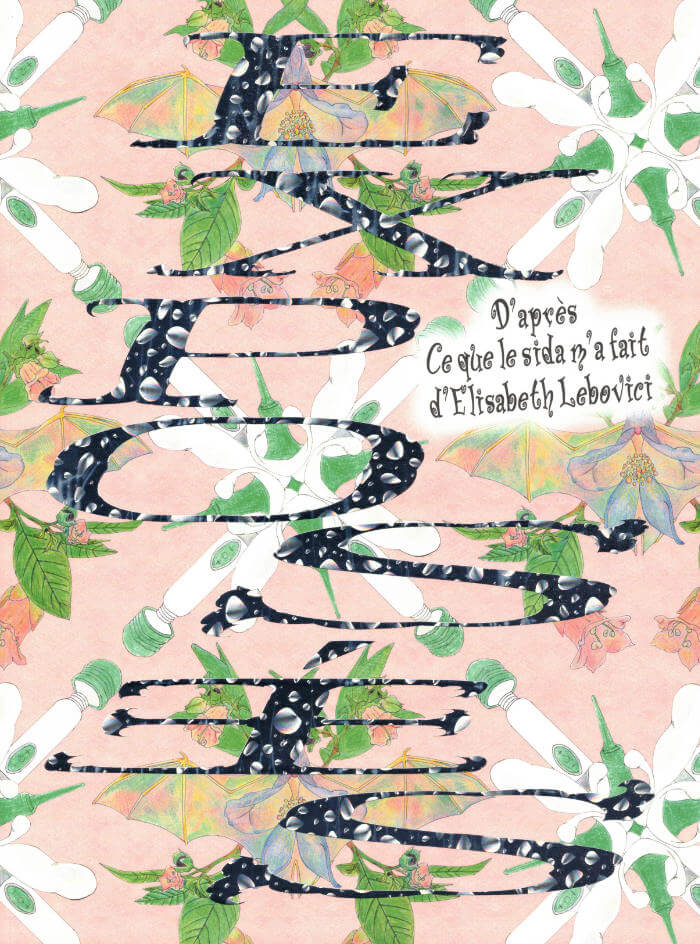
Exposé-es : d'après Ce que le sida m'a fait d'Elisabeth Lebovici
Fonds Mercator, Palais de Tokyo
Ce catalogue qui accompagne l’exposition Exposé·es ne se divise pas en chapitres, mais entrelace les genres et les modalités d’écriture et de documentation, avec des formats variés. Il comprend notamment une multitude de courts entretiens ou écrits autour des pratiques des artistes et de personnes concernées, des essais commandés à des auteur·rices et des séquences d’images, représentant les travaux des artistes de l’exposition, ou documentant des projets artistiques qui ont eu lieu historiquement dans le contexte de ces luttes.
Avec les artistes : Les Ami·es du Patchwork des noms, Bambanani Women’s Group, Bastille, yann beauvais, Black Audio Film Collective, Gregg Bordowitz, Jesse Darling, Moyra Davey, Guillaume Dustan, fierce pussy (Nancy Brooks Brody, Joy Episalla, Zoe Leonard, Carrie Yamaoka), Nan Goldin, Felix Gonzalez-Torres, Hervé Guibert, Barbara Hammer, Derek Jarman, Michel Journiac, Zoe Leonard, audrey liebot, Pascal Lièvre, Santu Mofokeng, Jean-Luc Moulène, Henrik Olesen, Bruno Pélassy, Benoît Piéron, Lili Reynaud-Dewar, Jimmy Robert, Régis Samba-Kounzi & Julien Devemy, Marion Scemama, Lionel Soukaz & Stéphane Gérard, Georges Tony Stoll, Philippe Thomas, David Wojnarowicz
Et les auteur·ices : Clémence Allezard, Cécile Chartrain, Vinciane Despret, Mylène Ferrand, Amandine Gay, Philippe Joanny, Elisabeth Lebovici, Nicolas Linnert, Sylvère Lotringer, Tim Madesclaire, Helen Molesworth, Veronica Noseda, Peggy Pierrot, François Piron, Donald Rodney, Jane Solomon, Jo-ey Tang, Gaëtan Thomas
Design graphique : Roxanne Maillet

Poster Edition (bundle)
4 poèmes-affiches, format A3, impriméx en risographie au studio Colorama (Berlin), sur papiers variés, tirage à 150 exemplaires
«GASOLINE, Apocalypse 1998», «the category is: phone sex», «zona nudista», «(fête) sentimental-e-s» : étés d'apocalypse, émojis banane, cruising transocéanique, SMS en short, sales coeurs, baraques à frissons et grand-huit sentimental... ces poèmes courent toustes ~ à genoux, à nu ou en solex ~ après la question du désir, après l'amour aussi, avec une tendre obsession
Design graphique signé Auriane Preud’homme, Enz@ Le Garrec, Roxanne Maillet & Martha Salimbeni, avec des dessins de Gaëlle Loth

Poster Editions (single)
4 poèmes-affiches, format A3, impriméx en risographie au studio Colorama (Berlin), sur papiers variés, tirage à 150 exemplaires
«GASOLINE, Apocalypse 1998», «the category is: phone sex», «zona nudista», «(fête) sentimental-e-s» : étés d'apocalypse, émojis banane, cruising transocéanique, SMS en short, sales coeurs, baraques à frissons et grand-huit sentimental... ces poèmes courent toustes ~ à genoux, à nu ou en solex ~ après la question du désir, après l'amour aussi, avec une tendre obsession
Design graphique signé Auriane Preud’homme, Enz@ Le Garrec, Roxanne Maillet & Martha Salimbeni, avec des dessins de Gaëlle Loth

Up Your Ass
Valerie Solanas's rarely published, legendary play, Up Your Ass, explodes social and sexual mores and the hypocritical, patriarchal culture that produces them through her signature irreverence and wit, incisiveness and camp.
The play, whose full title is Up Your Ass Or From the Cradle to the Boat Or The Big Suck Or Up from the Slime, marches out a cast of screwy stereotypes: the unknowing john, the frothy career girl, the boring male narcissist, two catty drag queens, the sex-depraved housewife, and a pair of racialized pickup artists, among others. At the center is protagonist Bongi Perez—a thinly veiled Solanas—a sardonic, gender-bending hustler who escorts us through the back alleys of her street life. The fictionalized predecessor to SCUM Manifesto, the play shares the same grand, subversive, implicative language, equally spitting and winking, embracing the margins, the scum, and selling a trick along the way.
Valerie Solanas (1936-1988) is an American radical feminist intellectual, known for her SCUM Manifesto—a pamphlet with which she declares the power of women and imagines a political future through the margin—, and for having tried to assassinate Andy Warhol.
Edited by Leah Whitman-Salkin.
With a contribution by Paul B. Preciado.
Graphic design: Roxanne Maillet.

Custody of the Eyes
A story that explores how power is enacted on and through the body—the physical, the social, and the political.
Alienation and dire frustration mount as an unnamed woman—a mother—struggles to survive in the face of state repression, neighborhood surveillance, extreme weather, and familial control. Told through one side of an epistolary exchange, the novel's letters are bookended by dense ramblings by the mother's son, who struggles to speak and write and spends most of his days in lockdown rearranging his "vessels," hysterically laughing, drooling, writhing, withdrawing—a state that will ultimately consume his mother as well. This is a story that explores how power is enacted on and through the body—the physical, the social, and the political. Custody of the Eyes (Los Vigilantes) reconfirms the essential, constitutive nature of language and expression in power and freedom.
Diamela Eltit (born 1947 in Santiago, Chile) is a Chilean writer and teacher.
Edited by Leah Whitman-Salkin.
Graphic design: Roxanne Maillet.
Published in May 2022
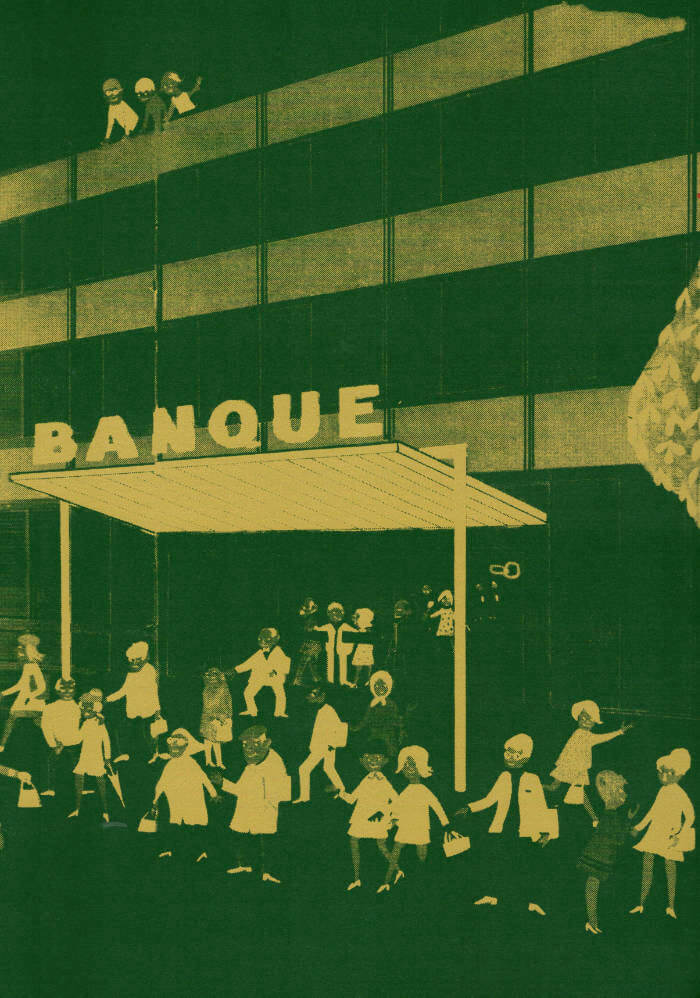
"Tu verras quand tu seras grand!"
Un livre qui t’expliquera tout sur l’argent, l’économie capitaliste, le système bancaire, la police et la révolution !
"Tu verras quand tu seras grand!", premier livre pour enfants des éditions L'Amazone, explique l’économie capitaliste mondialisée à travers quatre chapitres sur l'argent, le système bancaire, la police et la révolution. Il a été réalisé à partir des livres cités par l’auteure Marie L’or Kaeppelin-Billaudot dans Il sera une fois… Essai sur le contenu des livres pour enfants (Espaces féminins, La pensée sauvage, 1978). "Tu verras quand tu seras grand!" part du constat que peu de livres pour enfants traitent ouvertement de la question économique alors qu’elle est omniprésente dans leur quotidien. Le détournement de ces ouvrages, plus de quarante ans après leurs publications, nous permet de repenser notre rapport à ces mythes fondateurs, de la même manière qu’un conte joue un rôle dans la construction d’une histoire commune.
À partir de 6 ans.
Conception d’ouvrage : Tiphanie Blanc
Design Graphique : Tiphanie Blanc & Roxanne Maillet
Impression riso : Autobahn
Couverture sérigraphiée : Chromodrome
Papier : Arena Natural Rough 200g & Sirio Color Foglia 350g
Typographies : Ovo de Nicole Fally, Gaya de Raphaël de la Morinerie, DinDong de Clara Sambot, Zarathustra de Lorène Ceccon, Cormorant de Catharsis Fonts & Zipper de Bob Newman
Exemplaires : 250
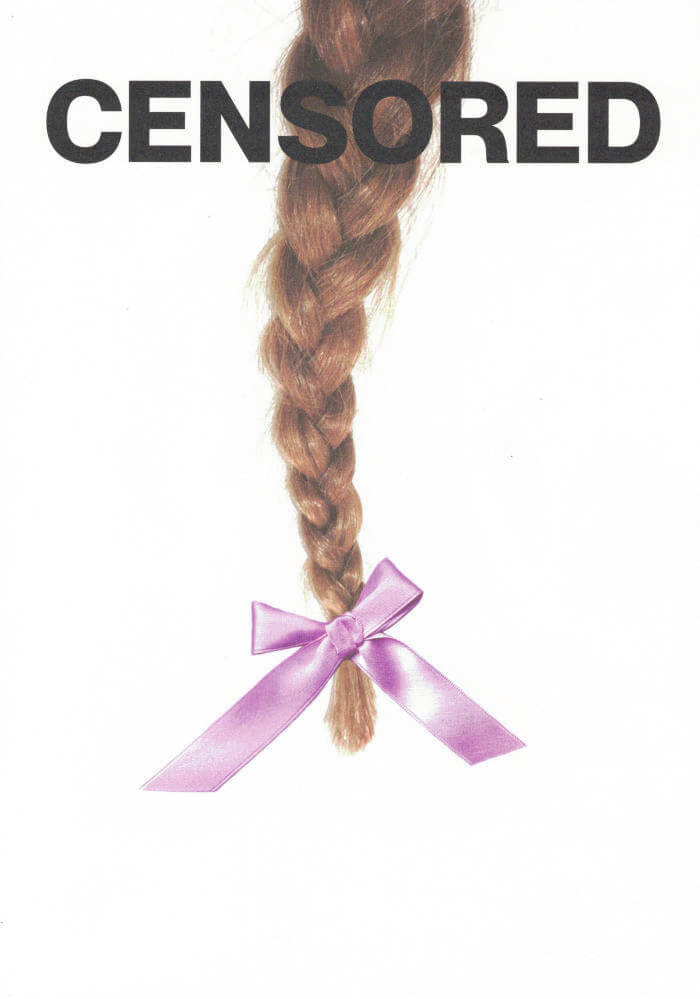
TRANSMISSION – CENSORED 05
Dans ce numéro, Censored explore les parcours de militant·es d’hier et d’aujourd’hui qui ont marqué l’histoire, l’enjeu politique des archives, ou encore la traduction féministe. Il aborde les influences entre l’art et les années sida, le traumatisme racial comme un enjeu de santé publique, la transmission intergénérationnelle avec des textes intimes. Censored s’est aussi intéressé à l’hétérosexualité comme système politique et à la déconstruction de la famille nucléaire.
Ce nouveau numéro présente une grande nouveauté, des cartes blanches à cinq artistes: Naïa Combary, Clara Pacotte et Charlotte Houette (EAAPES), Camille Soulat, Roxanne Maillet, Tabita Rezaire.
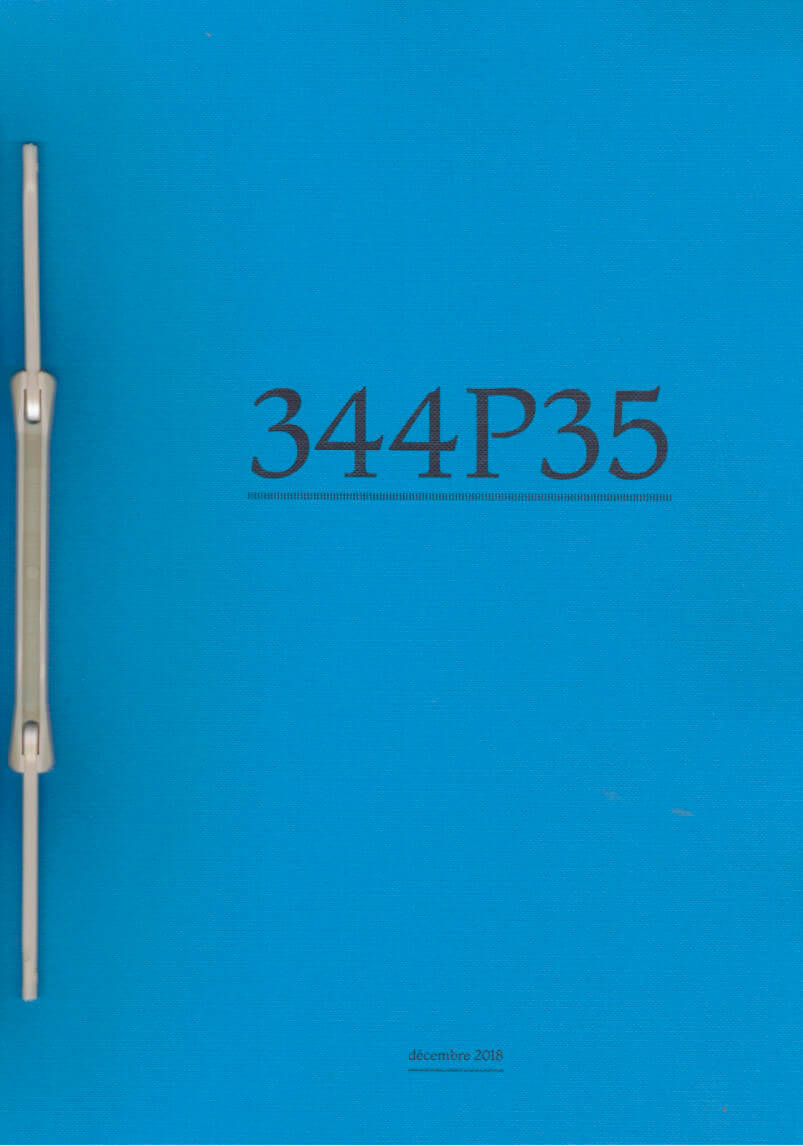
EAAPES – reader #2
Charlotte Houette, Clara Pacotte
Recherches du groupe EAAPES initié par Clara Pacotte et Charlotte Houette autour des questions queer et de féminismes dans la littérature de science-fiction/fiction spéculative.
Contient des traductions de nouvelles de plusieurs autriX tirées du recueil Sisters of the Revolution publié par Ann & Jeff Vandermeer, des interviews, des textes originaux, des articles plus contemporains, des extraits de fictions déjà publiées.
Les textes en langue étrangère sont tous traduits en français.
Avec les contributions de Alexia Foubert, Antoine Trapp, Ariane Sirota, Barbara Sirieix, Camille Pageard, Dora Diamant, Hélène Baril, Laetitia Paviani, Loraine Furter, Louise Truc, Luz De Amor, Mélodie Simonnet, Mirion Malle, Rosanna Puyol, Roxanne Maillet, Théo Robine Langlois.
Pub. dec 2018

Angoisse: Première Partie
Angoisse: Première Partie departs from the original script written for and used during its performance. The publication was then adapted listening to the sound recording and expanded with transcriptions of interactions, gestures and actions. Special edition w silk-printed handkerchiefs to weep on and wipe off those cold sweats. Graphic design, Roxanne Maillet.

In These Worried Puddles / Dans ces flaques inquiètes
This bilingual edition in two booklets (French/English) brings together short texts and narratives by Laure Vigna, accompanied by notes from news media and scientific articles. Several narrators, with more or less abstract identities alternately representing materials, sculptural forms, or the author, seem to speak under the effect of their emotional states.
Sharing the same spaces of action and words, they merge throughout the text, forming only one physical body at the end. In a collaborative effort between Laure Vigna and graphic designer Roxanne Maillet, the publication reveals research conducted on typography and letters as body, receptacles, and spaces.
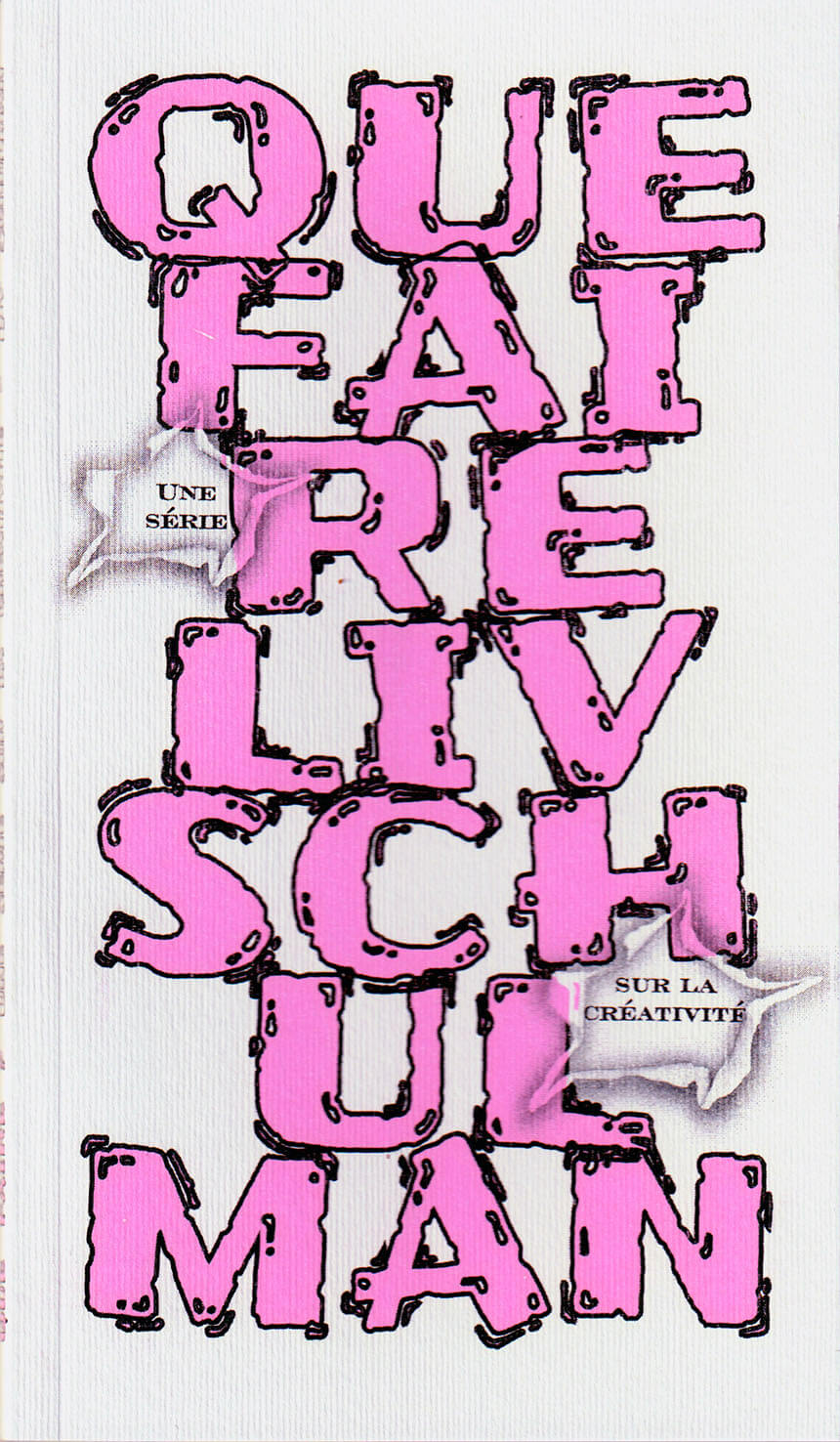
Que Faire
In Que Faire? a group of local amateur actors focuses on the exchangeable power of spoken word and its transformative nature. The group searches desperately for ideas, they look for a way to save their jobs through the use of language. They go to group therapy, they lock themselves in the writer’s room and they live their collective unemployment in an empty studio of the former Company. In QueFaire? the power of the collective works as a lonely psycothic voice. The city of Noisy-le-Sec where I have lived for 7 months becomes the ground of this fiction and integrates the inhabitants as actors, the activity and the municipal places of the city, gathering and re-inventing the notions of inspiration and creativity at work.
Authors and contributors: Liv Schulman, in collaboration with Alain Farrès, Dominique Martin, Thomas Brehamet-Godet, Gaëtan Alepee, Nathanaëlle Puaud, Emilie Renard, Zoe Charles, Alban Legass, Régine Besenval, Nadège Souillard et Marjolaine Calipel.
Text in French.
Graphic Design: Roxanne Maillet